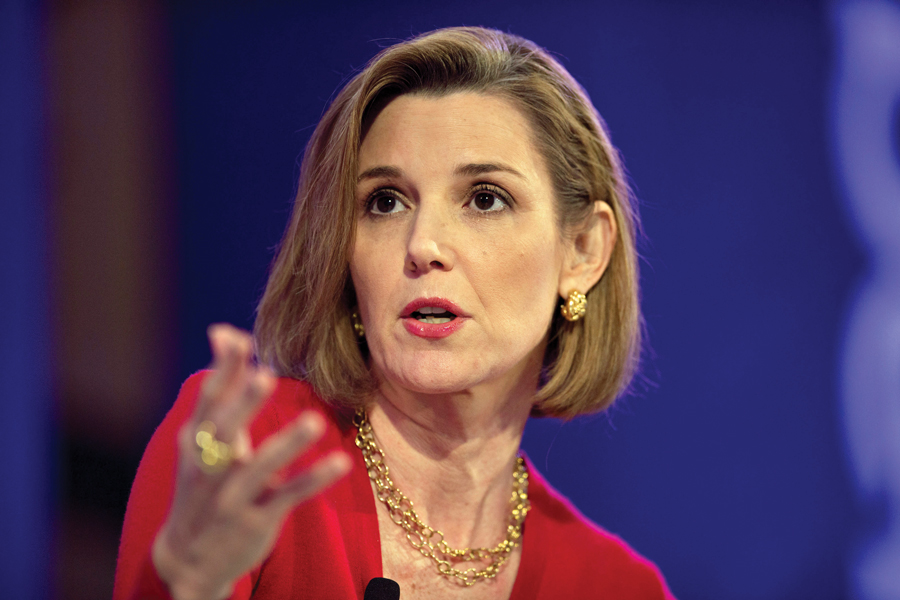The most common — and potentially costly — mistake women make with money is that they fail to invest enough of it, according to Wall Street veteran Sallie Krawcheck.
In fact, falling short in the amount or percentage of income they invest could cost some women more in the long run than the gender pay gap, said Ms. Krawcheck, CEO and co-founder of Ellevest,
a woman-focused robo-adviser launched in 2015.
[Recommended video: Bernie Clark: Zero commissions give advisers more opportunity to win clients]
Ms. Krawcheck spoke Tuesday morning in Manhattan at the
InvestmentNews Women Adviser Summit.
"There is also the gender investing gap," Ms. Krawcheck said. "And women today invest less than men do. Women today leave the majority of their money in cash. Men today have the minority of their money in cash."
"This gender investing gap costs women hundreds of thousands, and some of your clients millions of dollars, over the course of their lifetimes — for some women more than the gender pay gap does," she said.
Cash historically generates far less of a return than stocks or bonds but is perceived to have a lower risk and is often insured by the FDIC.
Investing in a diversified portfolio is a more direct solution for women than closing the gender pay gap, Ms. Krawcheck said. "Not that we should not do that, but this is actionable. The goal is to get more money into the hands of women."
According to a survey by UBS Group
released earlier this year, 59% of women age 20 to 34 defer investing and financial planning to spouses. The Swiss bank found that younger women are more likely than earlier generations to give such leeway to their partners.
Media outlets, particularly cable business news, buttress the perception that investing for men is a competition or sport, Ms. Krawcheck noted. Women get a different message, she said.
For women, the media message is "all about financial planning and very little about investing. Our industry sends out messages that women are not good at investing."
"That's not true," she said. Women tend to outperform when running hedge funds or mutual funds and even as individuals, she added.
Women have more of their money in cash rather than investing, so therefore the financial advice industry perceives them as risk-averse, she said.
"But maybe we as an industry have not done a good job serving them," Ms. Krawcheck said. "Maybe we as industry don't have enough women financial advisers to engage women as clients. Maybe we as industry treat investing like a sport. Maybe it's our fault. But the answer is no, women are risk-averse. It's their fault."
Men make up 80% or more of financial advisers and at least 90% of mutual fund managers, she said. That is extremely daunting for women who want to enter the financial advice industry, which has a bull, which epitomizes masculinity, as its core symbol.
"At Ellevest, our research shows women are not risk-averse but risk-aware," Ms. Krawcheck said. "The gender difference is that we want to understand risk before we take it."







